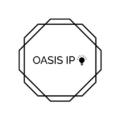When you think of intellectual property (IP), you might picture big corporations with fancy lawyers. But here is the truth: IP protection is just as important for small businesses, maybe even more so! Whether you are running a bakery, a fashion brand, a tech startup, or a craft shop, your ideas and creations are valuable. And yes, you can protect them.
Why Should You Care About IP?
I recently learned of a bakery in Kampala, Uganda, that makes very tasty bread, and apparently, they do have a reputation. These days, I notice and recognize their business name and logo, and I have already recommended the bakery to most of my friends and colleagues. This bakery’s name, logo, and recipe for the tasty bread are more than just business features, they are valuable intellectual property assets that can be protected and used to grow the business.
IP helps your business to stand out from your competitors, gives your brand legal protection, helps you attract investors or business partners, and even helps you get financing like loans, because IP is considered a valuable business asset.
Just like you can own a building or land, you can own your intellectual property, but only if you obtain legal protection.
So, Where Do You Start?
- Identify and List Your Unique Assets: Write down your business name, logo, product designs (that shape of cookies that is unique to your business), secret processes or recipes, or any creative work like website content, photographs, videos, manuals e.t.c.
- Register Your IP: In Uganda, visit the Uganda Registration Services Bureau URSB website to register your IP such as; trademarks (for names, logos, slogans other signs used to distinguish your business), copyright (for creative works like manuals, written recipes, promotional music or videos), or designs (appearances of your products like shapes, patterns that are new and original). Trade Secret (confidential information like your secret recipe). Note: A Trade secret is not registered, but must be kept secret with proper measures (e.g., limit who knows it, use NDAs with employees)
- Think About the Future: Do you have new ideas, products, or business plans coming up? Protect them early by obtaining registration, ideally before telling anyone. If you need to share your idea with a supplier, investor, or partner, make sure they sign a confidentiality or non-disclosure agreement (NDA). This helps prevent idea theft. Always keep proper records.
- Seek Advice: If you’re not sure what applies to your business, speak to an IP lawyer or visit your local IP Office (like URSB for Uganda) for guidance. It’s better to ask questions now than lose your ideas later.
- Use Your IP: Once registered, you can use your IP to attract investors, form partnerships, expand your business, or even get a bank loan. You can even sell your IP or allow others to use it for a fee.
You have worked hard to build your business. Do not leave your ideas and valuable assets exposed and unprotected. IP can be your secret weapon for business growth.
Even as a small business, Begin with IP in mind!
The World Intellectual Property Organization – WIPO, which is the the United Nations agency that serves the world’s innovators and creators by providing serves to enable them promote and protect IP, has developed information designed to help small and medium-sized enterprises (SMEs) especially to understand why it is important to pay attention to IP, and what benefits can be drawn from its use. Check them out here: Guides: Intellectual Property for Business.
Disclaimer: This article is for informational purposes only and does not constitute legal advice. For tailored guidance, please consult a qualified IP professional.
About the Author: Paget Owembabazi is an Intellectual Property Consultant and founder of OASIS IP – Intellectual Property Consultancy. She is passionate about simplifying IP for entrepreneurs and creatives to promote IP-driven business growth and the use of IP as a tool for achieving sustainable economic development.



